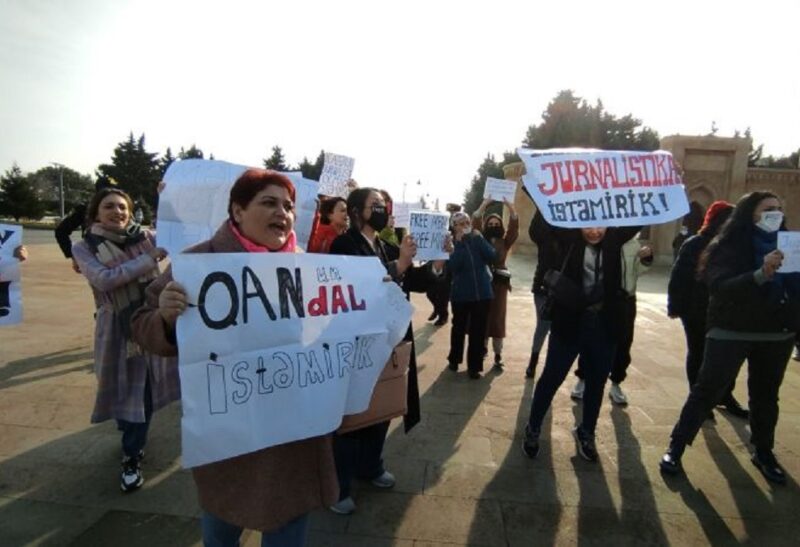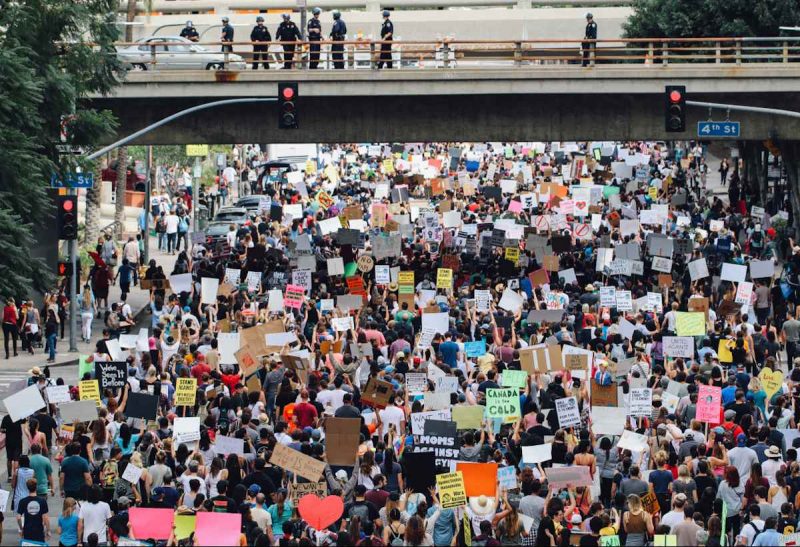

As shots across the ceasefire line are becoming more common, causing reportedly at least 4 lives — two Azeri soldiers, two Armenians — in the past 10 days, analysts and officials in Washington, DC debate whether Nagorno-Karabakh might be actually in a “pre-war” situation.
The State Department last week urged on the sides to refrain from the use of threat or force in the conflict zone.
In the meantime, several officials, off the record expressed skepticism that anything really new is happening, arguing “we have seen much of this before, many times — MG meetings, presidential bilats, violations on the line of contact and border.”
For DC analysts, latest tension is another sign that the simmering impatience over the lack of a long-term resolution for the conflict and escalating arms race that have long made the region one of the world’s hotspots, are most likely to erupt into conflict. About 20 soldiers on both sides were killed last year.
Although renewed war is not imminent, but that the momentum to another open conflict is “quite strong and growing,” a former American defense contractor, who recently returned from the region, said speaking on condition of anonymity.
The problem, he explained, is there is no military balance, but rather an asymmetry between Armenian defensive advantages and Azerbaijani buildup. Although the outcome of another war “is not predictable,” there is no doubt that it will be “fundamentally different from the first war and potentially more destructive.”
The international moderators, he added, in this case, would be buffeted from all sides in the event of an actual conflict breaking out and should concentrate first and foremost on containing it and seeking a rapid ceasefire.”
Meanwhile the recent escalation of violence comes at a time when the Minsk Group Co-chairs met with Azerbaijani-Armenian foreign ministers in Paris to buildup the prospects to continue working towards a peaceful, negotiated settlement.
So far, efforts by the US, Russia and France to broker a settlement have failed, Washington analysts believe.
“The basic outline for resolution of the [NK] conflict were negotiated in 2001, by the Presidents of Azerbaijan and Armenia at Key West, Florida. Little has changed to affect the situation since that time,” James Coyle, a former US diplomat and co-author of “Politics of the Middle East: Culture and Conflict,” currently a chair of the Eurasian Committee of the Pacific Council on International Policy, said in an interview.
Another analyst Thomas Ambrosio, a professor of political science in the Criminal Justice and Political Science Department at North Dakota State University, is also skeptical of the Minsk Group negotiations.
Speaking to Meydan, he said, ultimately, the problem is that the two sides have incompatible positions: the Armenians do not want to see NK become de facto or de jure under the sovereignty of Azerbaijan and the Azerbaijanis will not settle for anything less than recognition of either de facto or de jure sovereignty over NK.
However, the status quo is more acceptable to the two sides than any possible changes that are realistic: the Armenians have their de facto independence from Azerbaijan and the Azerbaijanis have the de jure claim to their post-Soviet territorial integrity.
Unless something happens that will change that dynamic, “the two sides will be locked into positions that no one can change,” he said, adding, this assumes, there is not an external source of pressure to change these deeply-entrenched positions– outside pressure that is unlikely to come from Moscow (since the status quo is to their liking), the US (since the region is not a top-level interest for them), or the French (who have too little power for anyone to listen).
“Ultimately, unless something fundamentally changes internally in either of the two main parties, or there is outside pressure to change the dynamics, this will simply be another round of fruitless talks,” he emphasized.
“Frozen conflicts are frozen for a reason – after two decades, the two sides and their international friends and allies are rather set in their positions,” he argued.
As the negotiation process is closed to the public, what should be the first step or any sign that would handicap the real progress in it?
For Ambrosia, if something were to happen, then it would “come as a surprise” to everyone. However, the only real sign that something positive was going to happen would be ‘leaks’ that would seek to spoil any positive outcome as those who do not want a resolution (or do not want that specific resolution) would try to scuttle the talks by leaking information that would enflame the population of one or both countries. “Of course, if that were to happen, any real progress might simply dissipate and we would be back to the beginning.”
As for the current ceasefire violations, the analyst said like any ‘frozen’ conflict, the NK has its ebbs and flows. It may be that we just happen to be in one of the high points.
However, he added, it is possible that the increase in tensions are, in fact, connected to the so-called peace process: both sides could be positioning in order to have the fear of a true outbreak of armed conflict pressure the other side or the Minsk Group countries to put pressure on the other side.
When asked what could the international peacekeepers really do, Ambrosia said, if they are Russians, that makes the partition of Azerbaijan permanent – like in Georgia. If they are not Russians, then they will not be in a position to stop the two sides from doing what they want to do.
Coyle, in his turn, mentioned that as Azerbaijan improves its relationship with Russia through military purchases, it both changes the military balance of power in the Caucasus and it demonstrates to Russia the advantages of having Azerbaijan as an ally.
Ambrosio argues that there is “no doubt” that Moscow is going to look out for its interests along its southern periphery. “Simply put, Moscow benefits from the status quo,” he said, arguing that Georgia is partitioned, Azerbaijan is partitioned, and Armenia is dependent upon the good will of Moscow for its territorial gains in NK (if Moscow gave the go-ahead, Azerbaijan could probably take NK back – but Baku knows that if they do, Russia will probably intervene). From the Kremlin’s perspective, things are going pretty well in the South Caucasus.
Meanwhile, analysts in Washington also believe that democratic governments in Baku and Yerevan are more likely to resolve political disputes in a peaceful manner as political leaders seem to carry too much baggage and are constrained by issues of historical memory or pressure from “outside groups.”
“The issue [of Nagorno-Karabakh] needs to be resolved through political compromise… The Minsk Groups member countries are more secure politically and economically through cooperation,” a former diplomat, who used to work in Armenia, mentioned.



